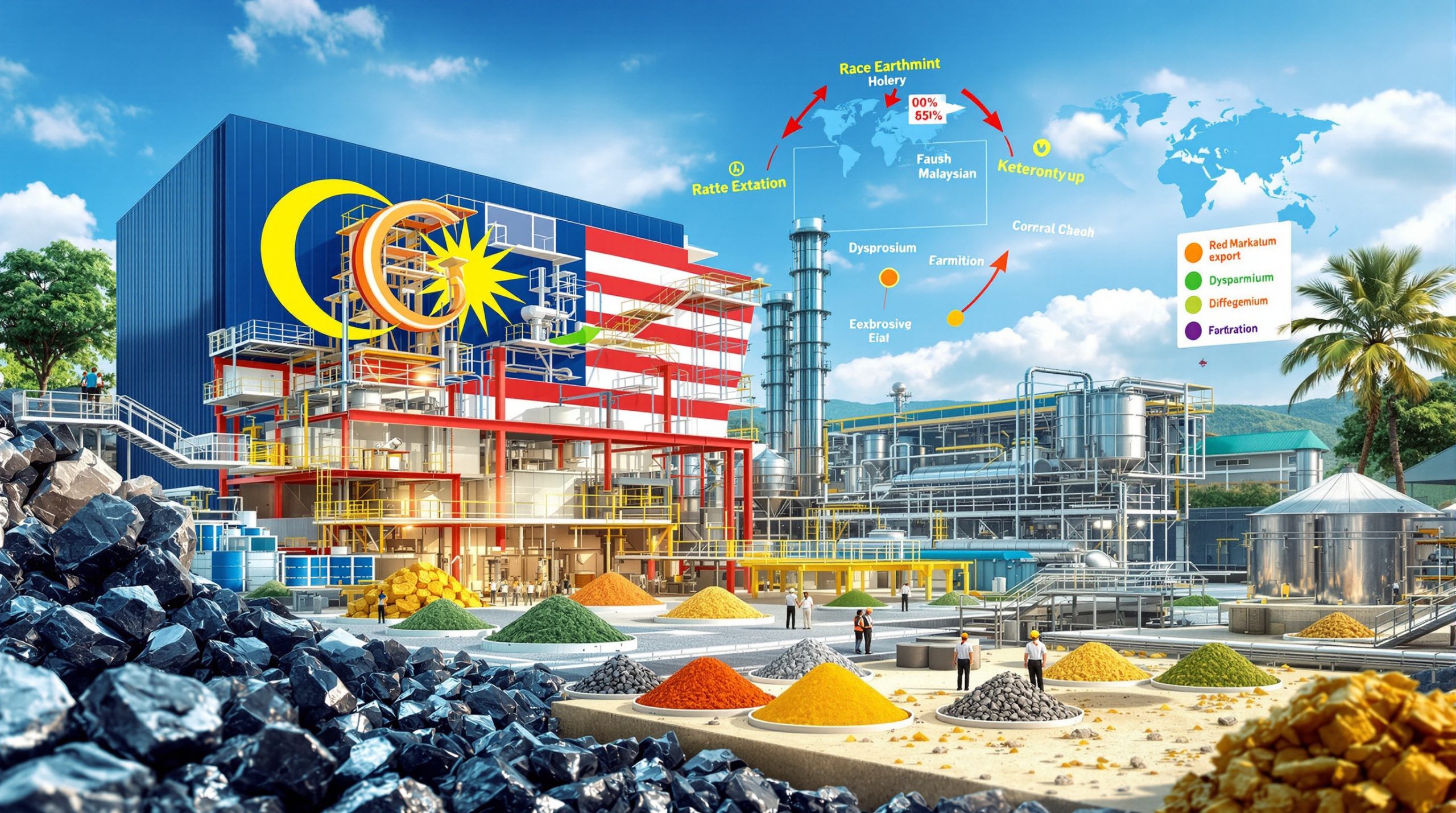Macquarie Group maintains its underperform rating on Fortescue Metals Group (ASX: FMG), though recent analysis reveals a more complex perspective on the iron ore producer's investment prospects. The Macquarie rating Fortescue shares reflects the investment bank's concerns about commodity exposure despite operational excellence. The investment bank has established a 12-month price target of $18.50 per share, representing approximately 10% downside potential from current trading levels around $20.67.
Key Rating Components and Strategic Framework
The underperform classification reflects Macquarie's fundamental concerns about Fortescue's concentrated exposure to iron ore price trends market volatility, despite recognising substantial operational improvements across the company's mining operations. Analysts emphasise that while FMG demonstrates exceptional operational control and strategic execution, the single-commodity revenue structure presents inherent risks during commodity cycle downturns.
Furthermore, Macquarie's assessment acknowledges that the company appears to be controlling the controllables, yet maintains that structural exposure to iron ore pricing remains the primary investment risk factor. This nuanced view separates operational excellence from market exposure considerations, highlighting the distinction between management capability and commodity market dynamics.
Price Target Methodology and Valuation Framework
The $18.50 price target incorporates updated production forecasts and operational efficiency improvements following integration of the Blacksmith Project acquisition. The 12% increase in Macquarie's previous price target reflects enhanced medium to long-term earnings expectations, though this valuation remains below current market pricing levels.
Key valuation inputs supporting the revised target include:
- Strip ratio optimisation through strategic mine planning
- Production capacity expansion potential to 215 million tonnes annually
- Infrastructure utilisation improvements addressing historical bottlenecks
- Cost structure enhancements from operational integration initiatives
How Do Fortescue's Q1 FY2026 Results Impact Investment Outlook?
Recent quarterly performance demonstrates several positive operational developments that influence Macquarie's analytical framework. However, these improvements remain within the context of broader commodity exposure concerns that shape the Macquarie rating Fortescue shares outlook.
Record Production Achievements and Financial Metrics
| Performance Indicator | Q1 FY2026 Result | Year-on-Year Change | Strategic Context |
|---|---|---|---|
| Iron Ore Shipments | 49.7 million tonnes | +4% increase | Record quarterly performance |
| Cash Position | US$4.6 billion | Maintained strength | Financial flexibility preserved |
| FY2026 Guidance | 195-205 million tonnes | Unchanged range | Conservative outlook maintained |
| Dividend Yield | 5.3% fully franked | Sustained level | Income generation capability |
The record quarterly shipments of 49.7 million tonnes establish a performance baseline suggesting annual production capacity exceeding 198 million tonnes. Consequently, this positions Fortescue well within its FY2026 guidance range of 195-205 million tonnes.
Operational Excellence and Strategic Implementation
Fortescue's implementation of its revised Hematite life-of-mine plan represents a transformative operational evolution incorporating the recently acquired Blacksmith Project assets. This strategic initiative targets optimised material movement and enhanced orebody utilisation while maintaining the company's position as a low-cost, capital-efficient operator.
In addition, the integration strategy focuses on several critical operational dimensions:
- Enhanced mining sequencing through improved geological understanding
- Capital efficiency maximisation across consolidated operational assets
- Value-driven resource extraction prioritising high-grade material access
- Infrastructure capacity optimisation addressing previous throughput constraints
What Operational Changes Are Driving Analyst Sentiment?
Macquarie's analysis highlights several transformative operational initiatives that significantly influence their investment perspective and valuation methodology. These changes have contributed to the nuanced Macquarie rating Fortescue shares assessment.
Strip Ratio Optimisation and Cost Structure Revolution
The integration of Blacksmith Project assets enables Fortescue to achieve a 1.6x reduction in Life of Mine strip ratio compared to previous operational parameters. This substantial improvement reflects strategic mine planning optimisation and represents material cost structure enhancement.
Technical Implementation Strategy:
The revised approach incorporates advanced geological modelling and strategic resource prioritisation:
- Geological sequencing optimisation through enhanced orebody understanding
- Waste-to-ore ratio improvement reducing material movement costs per tonne
- Mining constraint relaxation through lower cutoff grade thresholds
- Resource base expansion incorporating Blacksmith Project reserves
Product Strategy Evolution and Market Positioning
Fortescue's introduction of a 55% iron content product replacing the previous 60% West Pilbara Fines represents a strategic pivot addressing both operational constraints and market positioning considerations.
This product specification adjustment enables:
- Expanded mining flexibility through reduced grade cutoff requirements
- Infrastructure throughput optimisation addressing ship loading bottlenecks
- Market access diversification targeting mid-grade iron ore customers
- Operational efficiency gains through simplified processing requirements
For instance, Macquarie analysts noted that this strategic shift significantly impacts cost structure assumptions, stating that a shift in product strategy with a 1.6x strip target is significant and warranting substantial model revisions.
Heritage Constraint Management and Regulatory Compliance
The operational strategy addresses heritage-linked mining constraints through strategic grade management and mining sequence optimisation. Lower cutoff grades enable operational flexibility while maintaining compliance with regulatory requirements affecting mining access.
This approach demonstrates sophisticated understanding of the complex regulatory environment governing Western Australian mining operations. Furthermore, it particularly addresses Aboriginal heritage protection requirements.
How Do Infrastructure Constraints Affect Production Potential?
Current operational analysis reveals significant opportunities for production expansion through existing infrastructure optimisation rather than major capital expenditure requirements. The onslow iron transhippers developments demonstrate how infrastructure improvements can enhance capacity.
Ship Loading Bottleneck Analysis
"Ship loading facilities currently represent the primary constraint limiting production capacity expansion, rather than mining or processing capabilities."
This infrastructure analysis suggests that Fortescue's mining and processing operations possess capacity exceeding current export infrastructure limitations. The identification of ship loaders as the binding constraint indicates strategic infrastructure investment priorities for capacity expansion.
Capacity Liberation Scenarios:
- Iron ore price pressures reducing competitor utilisation of shared infrastructure
- Resource depletion at Hancock and Utah Hub operations freeing capacity
- Infrastructure reallocation opportunities through portfolio optimisation
- Operational efficiency improvements maximising existing asset utilisation
Long-term Production Forecasting and Capacity Planning
Based on operational improvements and infrastructure optimisation potential, Macquarie has revised long-run production estimates to 215 million tonnes per annum. This represents substantial upside from current guidance ranges.
This production target reflects:
| Capacity Factor | Current Status | Optimisation Potential | Production Impact |
|---|---|---|---|
| Mining Capacity | Above ship loading capacity | Optimised through strip ratio reduction | +5-10% throughput |
| Processing Capability | Sufficient for expanded production | Enhanced through product strategy | Maintained efficiency |
| Ship Loading | Primary bottleneck | Capacity release through competitor constraints | +10-15% potential |
| Rail Infrastructure | Adequate capacity | Optimised scheduling and utilisation | Supporting expansion |
Strategic Infrastructure Investment Considerations
The analysis suggests that production expansion to 215 million tonnes annually may be achievable through operational optimisation. However, this approach offers superior capital efficiency compared to traditional capacity expansion strategies requiring substantial port and rail investment.
What Market Factors Influence Fortescue's Investment Appeal?
Several macroeconomic and industry-specific factors shape the comprehensive investment thesis for Fortescue shares. These extend beyond operational considerations to encompass broader market dynamics that influence the Macquarie rating Fortescue shares perspective.
Iron Ore Market Dynamics and Price Sensitivity Analysis
| Market Factor | Current Impact | Investment Implication | Risk Assessment |
|---|---|---|---|
| Chinese Steel Demand | Moderate demand softening | Price pressure concerns | Medium-term headwind |
| Global Supply Growth | Limited new capacity additions | Supportive for incumbents | Competitive advantage |
| Infrastructure Investment | Government stimulus measures | Demand stability factor | Policy-dependent upside |
| Steelmaking Technology | Traditional blast furnace dominance | Stable iron ore requirements | Long-term demand support |
Chinese Economic Dynamics and Steel Consumption Patterns
China's economic trajectory significantly influences iron ore demand patterns, with steel production accounting for approximately 50-60% of global iron ore consumption. Current indicators suggest moderate demand softening reflecting broader economic adjustment patterns within Chinese industrial sectors. These patterns are further explored in iron ore demand insights.
Key Demand Drivers:
- Infrastructure development programmes supporting construction steel demand
- Manufacturing sector activity influencing industrial steel requirements
- Real estate market conditions affecting construction material consumption
- Government stimulus measures targeting infrastructure investment
Competitive Supply Landscape and Market Structure
The global iron ore market demonstrates oligopolistic characteristics with limited new capacity additions constraining supply growth. This market structure provides incumbent producers like Fortescue with competitive advantages through established operations and infrastructure assets.
Supply Constraint Factors:
- Long development timelines for new iron ore projects (typically 7-15 years)
- High capital requirements limiting new market entrants
- Environmental regulatory complexity increasing development costs
- Geological resource quality favouring established high-grade deposits
How Does Fortescue's Financial Position Support Future Growth?
Strong balance sheet metrics provide a robust foundation for strategic initiatives, shareholder returns, and operational flexibility during commodity cycle volatility. Moreover, the iron ore surplus concerns affecting the broader market make financial strength particularly important.
Cash Generation and Capital Allocation Framework
With US$4.6 billion in cash reserves, Fortescue maintains substantial financial flexibility supporting multiple strategic priorities simultaneously. This cash position represents approximately 6-9 months of operational cash requirements based on historical operating cost patterns.
Strategic Capital Deployment Options:
- Growth investments in production optimisation and capacity expansion
- Technology development supporting decarbonisation and efficiency initiatives
- Strategic acquisitions expanding resource base or value chain integration
- Shareholder distributions through dividends and potential share buybacks
- Debt reduction maintaining optimal capital structure flexibility
Dividend Sustainability and Income Generation Analysis
Current trading levels support a fully franked 5.3% trailing dividend yield, providing attractive income generation for yield-focused investors. Dividend sustainability depends on several critical factors:
Sustainability Metrics:
| Factor | Current Status | Sustainability Assessment |
|---|---|---|
| Cash Generation | US$4.6 billion reserves | Strong coverage capability |
| Production Volume | 195-205Mt guidance maintained | Stable operational foundation |
| Iron Ore Pricing | Market-dependent volatility | Primary sustainability variable |
| Capital Expenditure | Optimisation-focused approach | Manageable investment requirements |
Financial Flexibility and Risk Management
The robust financial position provides defensive characteristics during commodity downturns while maintaining growth option value during favourable market conditions. This financial strength enables counter-cyclical investment opportunities and market share expansion during industry stress periods.
What Alternative Investment Considerations Should Investors Evaluate?
Comprehensive investment analysis requires comparison with sector alternatives and broader market opportunities within the Australian resources landscape. Additionally, the impact of global iron ore tariffs creates another layer of consideration for investors.
Peer Comparison Framework and Competitive Positioning
| ASX Iron Ore Producer | Market Capitalisation | Production Scale | Cost Position | Diversification |
|---|---|---|---|---|
| BHP Group (ASX: BHP) | Largest diversified miner | Multi-commodity operations | Premium asset quality | Copper, iron ore, oil |
| Rio Tinto (ASX: RIO) | Major integrated miner | High-grade Pilbara focus | Low-cost producer | Aluminium, copper, iron ore |
| Fortescue (ASX: FMG) | Mid-tier specialist | Iron ore concentration | Cost-competitive operations | Single commodity exposure |
Risk-Adjusted Return Considerations and Portfolio Context
Investors evaluating Fortescue within broader portfolio allocations should consider several analytical dimensions:
Portfolio Integration Factors:
- Commodity cycle positioning and market timing considerations
- Geographic diversification benefits within Australian resource allocations
- ESG integration supporting long-term sustainability investment themes
- Income generation requirements versus capital growth objectives
- Currency exposure through USD-denominated commodity revenues
Sector Rotation and Economic Cycle Considerations
Iron ore investments typically perform best during economic expansion phases characterised by infrastructure development and industrial activity growth. Current economic conditions suggest mixed signals requiring careful timing considerations for optimal investment entry points.
Frequently Asked Questions About Macquarie's FMG Rating
Why Does Macquarie Maintain an Underperform Rating Despite Operational Improvements?
The underperform rating reflects structural concerns about iron ore market exposure rather than criticism of operational execution quality. Macquarie explicitly acknowledges Fortescue's strong operational management capabilities while emphasising that commodity concentration risks could significantly impact investment returns during market downturns.
This analytical approach separates management effectiveness from market exposure. In addition, it recognises that excellent operational performance cannot eliminate commodity price volatility impacts on shareholder returns.
How Significant Is the $18.50 Price Target Relative to Current Market Levels?
The price target implies approximately 10% downside from recent trading levels around $20.67, suggesting limited upside potential under Macquarie's current market assumptions. This conservative outlook incorporates cautious iron ore price forecasts and competitive market dynamics that may pressure profit margins.
The target represents a 12% increase from previous estimates, indicating improved operational outlook while maintaining overall cautious investment sentiment.
What Catalysts Could Drive Rating Improvements or Target Revisions?
Several potential developments could trigger positive rating revisions:
Positive Catalysts:
- Sustained iron ore pricing above US$100-110 per tonne levels
- Successful diversification initiatives into additional commodities or technologies
- Significant cost reduction achievements exceeding current optimisation targets
- Chinese infrastructure spending acceleration supporting steel demand growth
- Supply disruptions at competing iron ore operations globally
Risk Factors:
- Extended Chinese economic slowdown reducing steel consumption demand
- New iron ore supply sources entering global markets from Africa or South America
- Environmental compliance costs increasing production expense structures
- Currency appreciation reducing USD revenue competitiveness
Investment Decision Framework for FMG Shareholders
Strategic considerations for current and prospective Fortescue investors encompass multiple analytical dimensions requiring systematic evaluation of opportunities and risks.
Bull Case Scenario Development
Favourable Conditions Supporting Higher Valuations:
- Chinese economic stimulus programmes driving infrastructure spending and steel demand recovery
- Global supply constraints from environmental regulations or geopolitical disruptions at competing operations
- Operational excellence execution delivering cost reductions exceeding current targets
- Premium pricing realisation for high-quality iron ore products in supply-constrained markets
- Infrastructure capacity optimisation enabling production expansion without major capital expenditure
The bull case scenario projects potential upside through operational leverage and market dynamics favouring established, low-cost producers during supply constraint periods. Furthermore, recent investment analyst reports provide additional perspectives on these opportunities.
Bear Case Risk Assessment and Mitigation
Challenging Conditions Potentially Pressuring Investment Returns:
- Prolonged Chinese economic adjustment reducing steel consumption below trend growth rates
- New supply source development from greenfield projects in Africa, South America, or India
- Rising operational costs from inflation, labour disputes, or regulatory compliance expenses
- Environmental transition impacts affecting traditional steelmaking demand patterns
- Currency volatility reducing USD-denominated revenue competitiveness
Strategic Positioning and Timing Considerations
Investment timing within commodity cycles significantly influences return outcomes. Current market positioning suggests:
Market Timing Indicators:
| Indicator | Current Assessment | Investment Implication |
|---|---|---|
| Iron Ore Pricing | Mid-cycle levels | Moderate entry conditions |
| Chinese Demand | Stabilising patterns | Cautious optimism warranted |
| Supply Growth | Limited near-term additions | Supportive for incumbents |
| Economic Cycles | Mixed global signals | Diversification benefits important |
Portfolio Integration and Risk Management
Fortescue investment consideration within broader portfolio construction should emphasise:
- Position sizing appropriate to commodity exposure tolerance
- Diversification benefits within Australian resource sector allocation
- Income generation through dividend yield sustainability assessment
- Economic cycle sensitivity and correlation with other portfolio holdings
- ESG considerations regarding environmental and social governance practices
Balancing Opportunity and Risk in FMG Investment Decisions
Macquarie's underperform rating with an $18.50 price target reflects a measured assessment balancing Fortescue's operational excellence against commodity market uncertainties. The analysis acknowledges exceptional operational management and strategic planning capabilities while emphasising that concentrated iron ore exposure presents inherent volatility risks for investor returns.
Investment Synthesis:
The comprehensive analysis suggests Fortescue represents a well-managed iron ore operation demonstrating strong operational control and strategic execution. However, current trading levels may not offer compelling risk-adjusted returns under prevailing market conditions, though operational improvements provide defensive characteristics supporting long-term value creation potential. This perspective is further supported by professional investment analysis from independent research platforms.
Key Investment Considerations:
- Operational excellence providing competitive advantages and cost structure optimisation
- Financial strength supporting dividend sustainability and strategic flexibility
- Market timing sensitivity requiring careful consideration of commodity cycle positioning
- Diversification benefits within resource-focused portfolio allocations
- Risk management through position sizing appropriate to commodity exposure tolerance
Investors should evaluate Fortescue within comprehensive portfolio diversification strategies, recognising both income generation potential through dividend distributions and cyclical volatility characteristics inherent in commodity-focused investments. The company's robust balance sheet and operational improvements provide defensive qualities, though optimal investment timing remains crucial for maximising risk-adjusted return outcomes.
Investment Framework Summary: Macquarie's analysis positions FMG as a well-executed iron ore operation trading at levels that may not provide superior risk-adjusted returns under current market assumptions, while operational excellence and financial strength offer some support for long-term value creation in favourable market conditions.
Ready to Discover Your Next High-Potential Mining Investment?
Don't miss the next major mineral discovery that could deliver exceptional returns like those seen with De Grey Mining and WA1 Resources. Discovery Alert's proprietary Discovery IQ model instantly scans ASX announcements to identify significant discoveries, providing you with actionable trading and investment opportunities ahead of the broader market. Begin your 30-day free trial today and gain the market-leading advantage you need to stay ahead of commodity cycles and capitalise on breakthrough discoveries as soon as they're announced.




